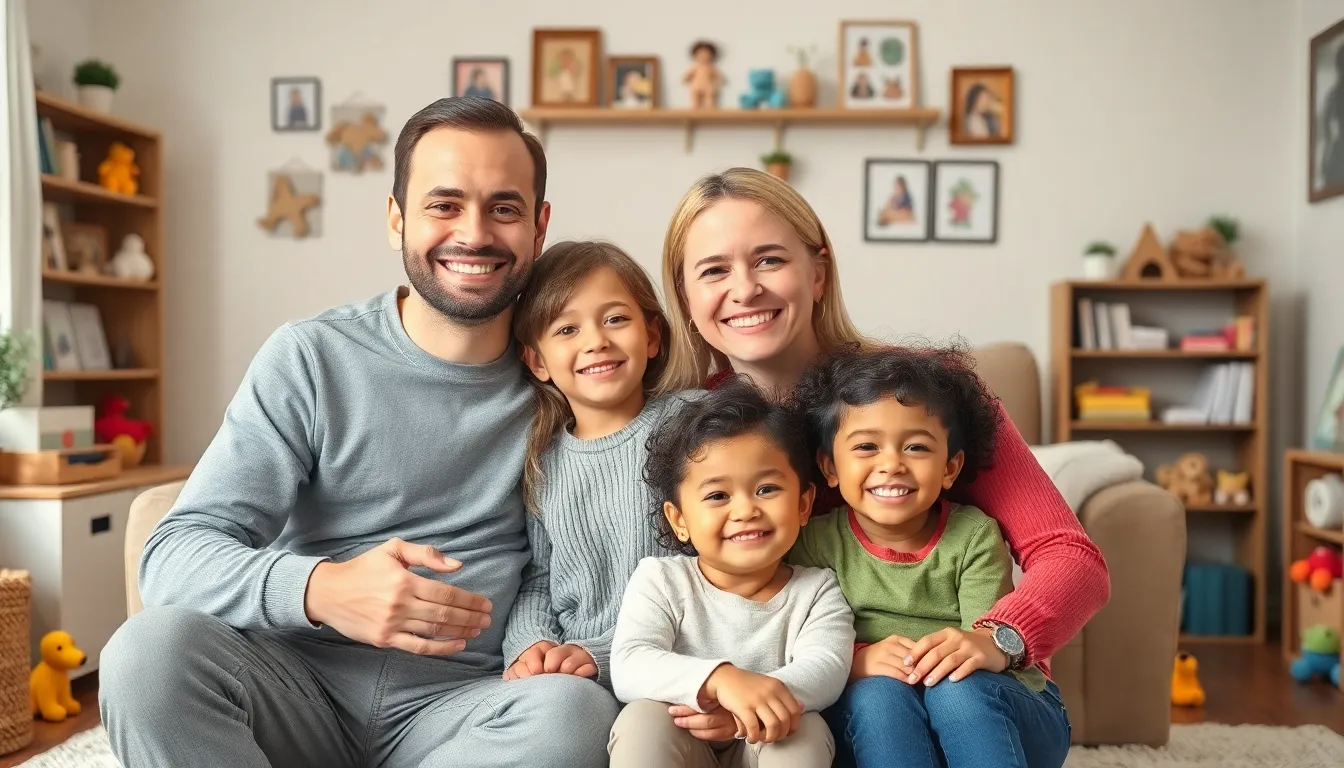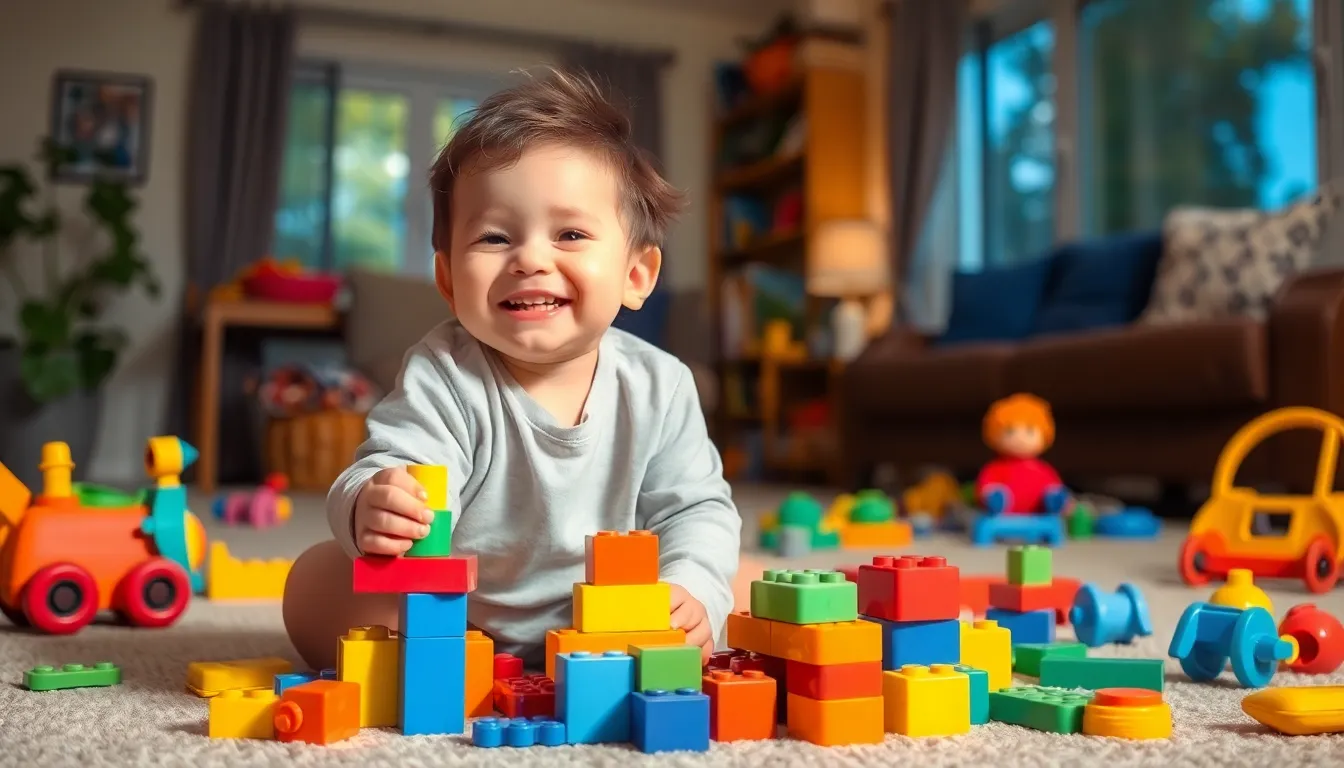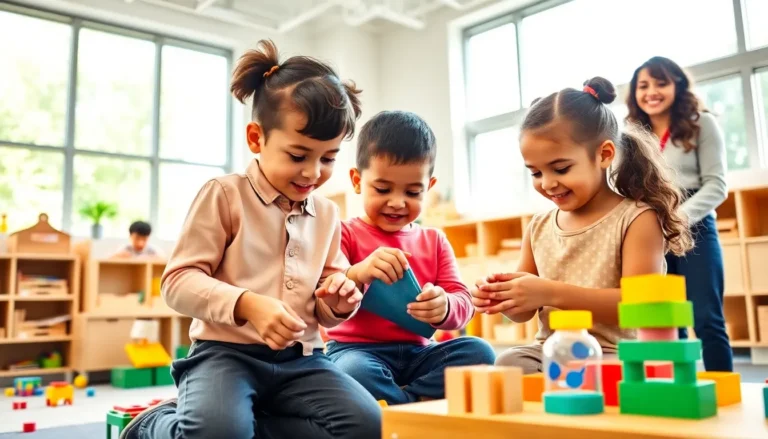Adoption from foster care isn’t just a heartwarming story; it’s a chance to change lives—yours included. Imagine opening your home to a child who’s been waiting for a family to call their own. It’s like finding that last piece of a jigsaw puzzle, except this puzzle comes with a side of laughter, occasional chaos, and a whole lot of love.
Many people think adopting from foster care is a complicated maze, but it’s more like a fun scavenger hunt where every twist and turn leads to joy. With thousands of children in need of a loving home, the opportunity to make a difference has never been greater. So why not dive in? You might just discover that the adventure of a lifetime is waiting for you right around the corner.
Table of Contents
ToggleUnderstanding Adoption From Foster Care
Adoption from foster care provides children with permanent, loving homes. This process often involves children who cannot reunite with their biological families, making it crucial for eager parents.
Definition and Process
Adoption from foster care involves legally transferring parental rights from the state’s child welfare agency to the adoptive parents. Typically, caseworkers assess children’s eligibility for adoption after completing various reunification efforts. Parents interested in adopting usually undergo training and home studies. The journey varies, often starting with a desire to provide stability to a child in need. Finalization occurs in court, where the adoption becomes legally binding.
Key Statistics
In America, approximately 423,000 children are in foster care at any given time. About 20,000 of these children age out of the system annually without finding permanent families. The average time spent in foster care before adoption is around 34 months. Statistics indicate that more than 50% of children in foster care are awaiting adoption. According to the National Adoption Center, over 100,000 children in foster care are eligible for adoption, highlighting the urgent need for adoptive families.
Benefits of Adoption From Foster Care

Adoption from foster care offers numerous advantages for both children and adoptive families. It creates a lasting bond filled with love and support while addressing critical needs faced by many children in foster care.
Emotional and Psychological Gains
Emotional and psychological benefits are significant in the context of adoption from foster care. Children gain a sense of belonging and security through a stable, loving environment. Stability fosters their emotional well-being, reducing anxiety and fostering healthy relationships. Adoptive families experience deep fulfillment as they build lasting connections with their children. Love and support create a nurturing atmosphere that promotes resilience and growth. Statistics indicate that children adopted from foster care often display improved mental health outcomes compared to those remaining in the system.
Stability for Children
Stability provides essential security for children in foster care. A permanent home reduces the uncertainty surrounding frequent placements, crucial for their development. Children who find a permanent family often experience better educational outcomes and fewer behavioral problems. They thrive academically and socially in stable environments. Foster care statistics reveal that children spend an average of 34 months in care before adoption, which highlights the urgency of finding them stable homes. By adopting, families contribute to creating a foundation for success and happiness in children’s lives.
Challenges in Adoption From Foster Care
Adoption from foster care presents several challenges. Addressing these issues effectively is crucial for successful placements.
Emotional Preparedness
Emotional readiness plays a significant role in the adoption process. Adopting parents must recognize potential emotional challenges children face. Experiences in foster care often leave children with unresolved trauma, leading to attachment issues and trust difficulties. It’s vital for parents to prepare for these emotional hurdles, ensuring they can provide the necessary support. Understanding these challenges increases the likelihood of building a stable, loving environment, fostering healthy connections.
Legal and Bureaucratic Hurdles
Adoptive parents encounter numerous legal and bureaucratic obstacles throughout the process. Navigating child welfare systems can be complex and time-consuming. Legal rights transfer requires extensive documentation, background checks, and assessments by social workers. These procedures can vary across states, adding to the confusion. Parents must remain patient and proactive to address these hurdles effectively. Completing all necessary paperwork and court appearances is essential for finalizing an adoption, ensuring the child’s legal transition to a permanent home.
The Role of Support Systems
Support systems play a crucial role in the success of adoption from foster care. These systems include community, family, and professional networks.
Importance of Community Support
Community support provides vital resources for adoptive families. Accessing local support groups can help parents connect with others who share similar experiences. Building relationships with those who understand the unique challenges of adoption fosters emotional resilience. Engaging in community activities promotes inclusivity and creates a wider support network. Research indicates that families with strong community ties experience improved emotional well-being. Parents often find it easier to navigate the complexities of adoption when backed by a supportive community.
Resources for Adoptive Families
Various resources exist to assist adoptive families during their journey. Organizations dedicated to adoption offer workshops, seminars, and training sessions tailored to specific needs. Additionally, many states provide financial assistance programs to support adoption-related expenses. Online forums and social media groups enable families to share experiences and gather advice. Local agencies can connect families with therapists specializing in attachment and trauma care. Utilizing these resources can significantly ease the transition for children and adoptive parents.
Adoption from foster care is a profound opportunity that can change lives forever. It offers children the chance to thrive in nurturing environments while providing adoptive families with the joy of creating lasting bonds. The journey may present challenges, but the rewards far outweigh them.
With thousands of children waiting for loving homes, prospective parents can play a crucial role in transforming lives. By embracing this adventure, families not only enrich their own lives but also contribute to the well-being of children in need. Each adoption story adds a unique piece to the tapestry of love and connection that fosters a brighter future for everyone involved.




